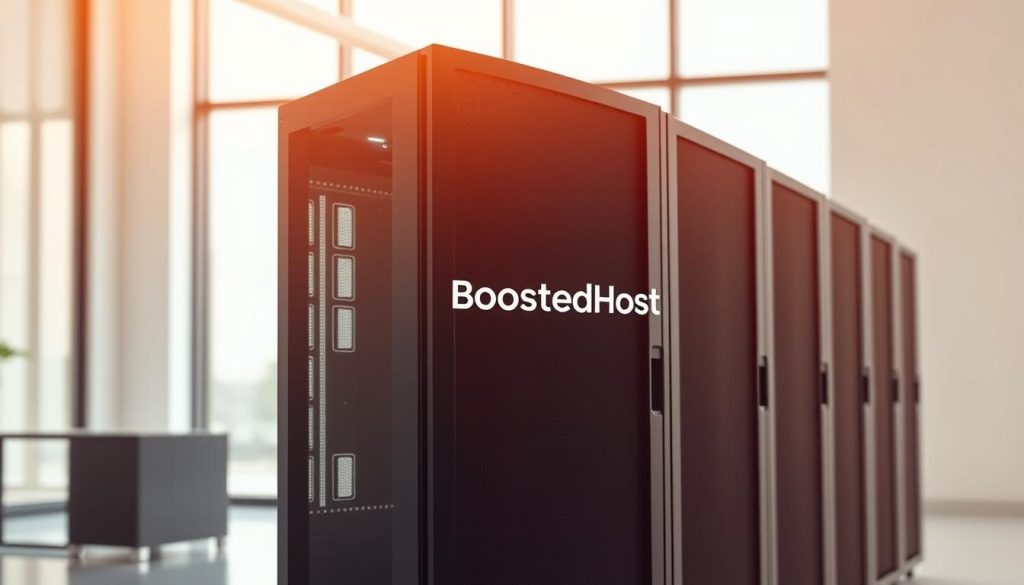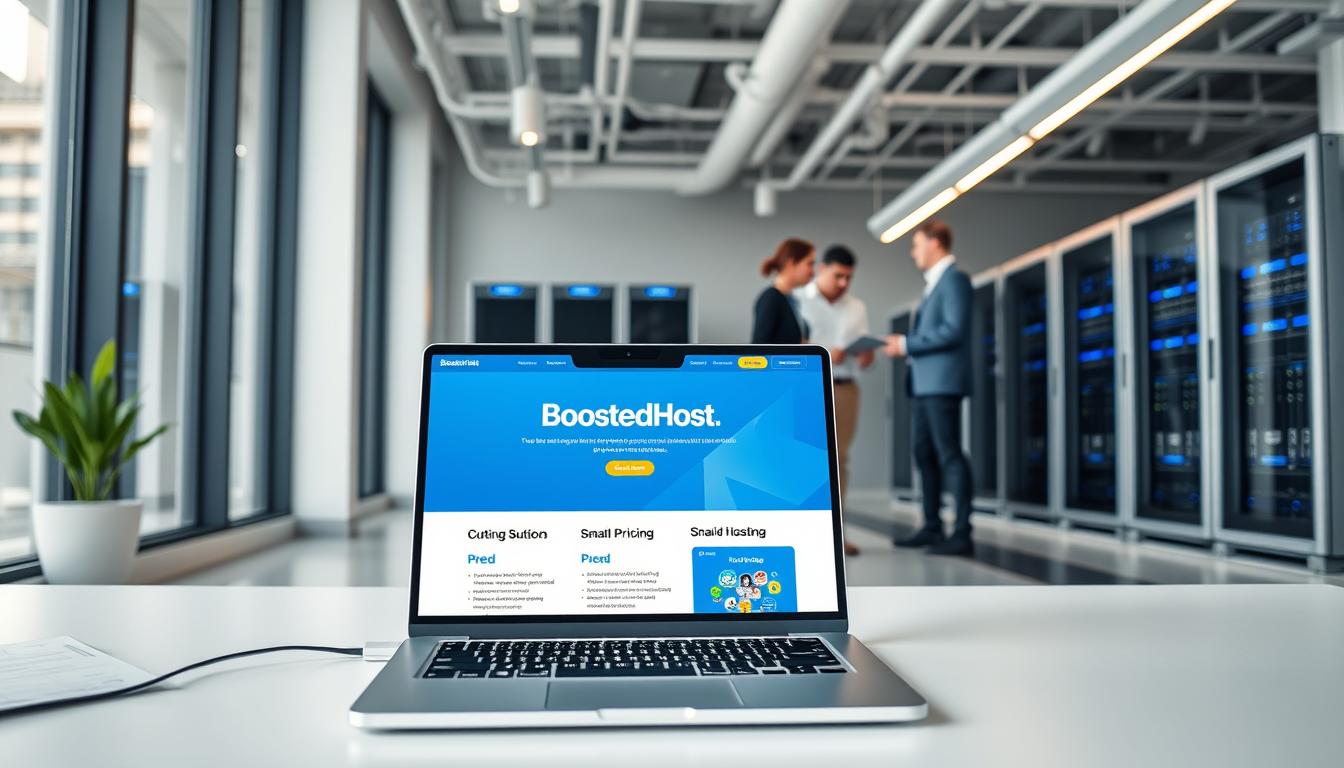We get it: choosing a host feels like a high-stakes decision. Your site carries sales, reputation, and hours of work. We’ve tested metrics and lived the panic of slow pages during peak traffic.
In this head-to-head we measure what truly matters in 2025—time to first byte, uptime, transparent pricing, and real features you’ll use. Our focus is on managed wordpress and WooCommerce sites where performance converts to revenue.
One contender brings Swiss-engineered speed, LiteSpeed servers, sub-200ms global TTFB, a global CDN, daily backups, malware protection, and instant AI site launches. The other shines with white-glove migrations, built-in CDN and email, and praised 24/7 support.
We explain the data plainly. We translate tests and reviews into real outcomes for your website. Read on to get the quick verdict, or dive deeper into speed, uptime, features, and pricing so you can pick the right plan for your site without second-guessing.
Key Takeaways
- We compare raw speed, uptime, pricing transparency, and real-world features for WordPress hosting.
- Speed matters: sub-200ms TTFB and a global CDN change user experience and SEO.
- Value equals performance per dollar over time—not just low introductory pricing.
- Managed workflows and white-glove migrations are strengths to weigh for busy teams.
- Our verdict highlights speed and transparency as decisive for e-commerce and high-traffic sites.
Quick verdict: who’s best for speed, support, and value in 2025
We cut through marketing claims and give you a clear pick for speed, support, and value in 2025. Our testing focused on real-world performance, uptime, and the predictable costs you need to run a business website.
At-a-glance winners by category
- Speed winner: LiteSpeed servers and a global CDN deliver sub-200ms TTFB — the clear speed edge for fast WordPress hosting.
- Uptime winner: 99.99% average keeps critical campaigns live.
- Support: Tie — both providers offer 24/7 help; one scores top marks for response times, the other resolves many tickets in minutes.
- Managed workflows: The other provider leads on staging, safe updates, and white-glove migrations.
Who should choose each provider
If you want the fastest performance, predictable pricing, and an AI site builder to launch quickly, pick the speed-first option. It gives strong value per dollar for blogs, local businesses, and agencies that need consistent performance.
If you need full-service migrations, built-in email, and deeper managed WordPress/WooCommerce tooling, choose the white-glove provider — ideal for stores and teams that value hands-off onboarding and dev workflows.

How we evaluated hosting providers for this roundup
We tested with clear, repeatable methods so the results reflect real-world website needs. Our focus was objective metrics that matter to businesses: server response, full page load, uptime, and the speed of support. We combined lab tools with real-use checks to build a balanced view.
Performance metrics
TTFB, load time, and uptime standards
We benchmarked Time to First Byte (TTFB) and fully loaded page time because early server response drives SEO and conversions. We used WebPageTest and Load Focus to gather consistent data. Third-party reviews reported averages such as ~275 ms response and ~475 ms load in one set, and other tests showing 400 ms TTFB and 955 ms fully loaded time. We treat sub-200ms TTFB and 99.99% uptime as the gold standard.
Support responsiveness
Response speed and resolution time
We measured support by response immediacy and resolution time — not just 24/7 availability. Fast first replies and quick resolution matter for mission-critical sites.

We also scored managed workflows: staging, safe updates, and migrations. These affect developer velocity and risk. Finally, we weighed transparent pricing and included defaults like SSL, backups, and CDN to model total cost of ownership.
| Evaluation area | Metric | Target / Best practice |
|---|---|---|
| Server response | TTFB (ms) | <200 ms |
| Page load | Fully loaded time (ms) | <800 ms preferred |
| Uptime | Availability | 99.99% |
| Support | First response / resolution | Minutes to few hours |
| Managed tooling | Staging, migrations, safe updates | Included or clearly priced |
BoostedHost vs Nexcess: the head-to-head essentials
Here’s a clear snapshot of where raw speed meets hands-off management for modern WordPress sites.
Performance: One provider leans on a LiteSpeed stack and a global CDN to hit sub-200ms TTFB. The other posts solid response and load figures in independent reviews.
Reliability: The speed-first host advertises a 99.99% uptime average. The managed provider scores ~4.5/5 for uptime and steady performance in third‑party tests.
Pricing and features: Transparent, no-hidden-fee plans favor clarity. The managed suite starts higher, includes built-in CDN, SSL, and email, and does not include a free domain by default.
Workflows & support: White-glove migrations, staging/dev, and safe updates are strengths of the managed service. The speed-first option focuses on simplicity, Orbit AI site launches, and resolving most requests in minutes.
Developer & ecommerce needs: Both support WooCommerce and developer tools. One adds multi-runtime support (PHP, Node.js, Python); the other offers specialized WooCommerce and Magento plans.
“Pick raw speed and predictable pricing for performance; choose managed convenience when onboarding and migrations matter more.”
| Category | Speed-first | Managed provider |
|---|---|---|
| TTFB / Servers | LiteSpeed, sub-200ms | Solid averages (~275–475ms) |
| Included tools | Orbit AI, malware protection | CDN, SSL, email, free migrations |
| Support & workflows | Fast ticket resolution | 24/7 white-glove migrations & staging |
Speed and performance: TTFB, caching stack, and global delivery
Milliseconds matter: we break down server response, caching, and CDN reach for real sites. Fast server response and edge delivery change how a page paints and how users interact with a site.
BoostedHost: sub-200ms global TTFB with LiteSpeed and global CDN
LiteSpeed servers, QUIC/HTTP/3, and edge caching deliver a measurable TTFB advantage worldwide. Built-in LSCache reduces PHP overhead for WordPress and WooCommerce sites under load.
Nexcess: ~275 ms average response and ~475 ms load time reported
Independent tests report roughly 275 ms response and 475 ms fully loaded times. Alternate tests show a 0.400 s TTFB and up to 955 ms fully loaded—test location and methodology explain the spread.
What these numbers mean for real-world WordPress websites
Sub-200ms TTFB improves first paint and Core Web Vitals, especially on mobile. That boosts conversion and lowers bounce.
- Server response: affects admin speed and dynamic cart actions in WooCommerce.
- CDN reach: shortens round-trips for international visitors and stabilizes peak-hour performance.
- Practical pick: choose by traffic geography—multi-region servers plus CDN serve global audiences best.
“Faster page loads equal higher conversions and better SEO outcomes.”
Uptime and reliability: staying online when it counts
Keeping a website reachable during traffic spikes separates good hosts from great ones. We focus on availability, redundancy, and how fast incidents are resolved. These factors protect revenue and SEO.
BoostedHost’s 99.99% average uptime
99.99% uptime is the target. Redundant server clusters across Switzerland, the USA, Europe, and Asia reduce regional risks. That setup shortens maintenance windows and limits single-point failures.
Nexcess performance and uptime ratings from independent reviews
Independent reviews rate the managed provider at 4.5/5 for performance and uptime. That score reflects steady response under load and strong monitoring practices.
- Targets: 99.99% availability for revenue pages and campaigns.
- Redundancy: multi-region data and proactive monitoring shrink downtime.
- Backups: daily snapshots from both providers help you recover fast.
- Managed guardrails: expert support reduces configuration errors that can cause outages.
Bottom line: choose speed-first redundancy if you want raw resilience and predictable uptime. Choose managed stability if you prefer hands-off protection and white-glove incident handling.
Pricing transparency and total cost of ownership
Upfront fees tell only part of the story; total cost of ownership decides if a host scales with your site.
BoostedHost: transparent pricing with no hidden fees
We favor clear billing. Monthly plan prices include essentials—SSL, daily backups, malware protection, and a global CDN. That bundle keeps your budget predictable.
Orbit AI cuts build time. Faster launches lower initial labor costs. For agencies, predictable per-site charges simplify quoting and retainers.
Nexcess: higher starting prices and domain not included
The managed option starts at $19/month for Spark. It includes email with unlimited storage, free migrations, CDN, SSL, and backups. Domains are sold separately.
White-glove migrations reduce setup hours. That offsets some of the higher entry price if you need hands-off onboarding.
“Choose the pricing model that matches your roadmap—lean and transparent or bundled managed conveniences.”
- Watch renewals: compare true month-to-month costs, not just promotions.
- Factor storage and bandwidth: overages change total cost quickly.
- Decide on email: bundled email can be cheaper than third-party providers depending on team size.
| Cost element | Transparent, bundled plans | Managed starter plan ($19/mo) |
|---|---|---|
| Included SSL | Yes | Yes |
| Backups | Daily included | Daily included |
| Optional (third-party) | Included, unlimited storage | |
| Migrations | Instant provisioning or paid assist | Free white-glove migration |
Included features that matter: SSL, backups, CDN, and security
Essentials like SSL, backups, CDN, and basic security decide whether your website survives an incident or a traffic surge. We focus on what ships by default and how that lowers risk and cost.
BoostedHost: free SSL, daily backups, malware protection, global CDN
Free SSL and daily backups are included on every plan to secure your site and simplify compliance.
Malware protection runs by default to reduce exposure from day one. A global CDN pairs with LiteSpeed servers for faster global delivery.
Nexcess: free SSL, CDN, email, daily backups, and free migrations
The managed provider includes Let’s Encrypt SSL, built-in CDN, and free email with unlimited storage. White-glove migrations are provided at no cost.
Backups are daily and easy to restore from the control panel. Credential automation rotates passwords and tightens access controls.
- Both providers offer daily backups and CDN acceleration.
- Key difference: one bundles email and migrations; the other defaults to aggressive speed and malware defaults.
- Decide if bundled email matters or if you prefer third-party deliverability tools.
- When essentials are included, you avoid surprise add-ons and lower total cost of ownership.
“Backups plus malware scanning reduce the blast radius of incidents and speed recovery.”
Managed WordPress hosting and WooCommerce readiness
For WooCommerce sites, the right managed plan blends edge speed with careful update tooling to protect conversions. We look at how each provider readies stores for traffic, checkouts, and plugin churn.
BoostedHost: optimized WordPress hosting with WooCommerce support
We recommend this option when speed matters: LiteSpeed, global CDN, and tuned caching make carts and checkout flows snappy.
Sub-200ms TTFB keeps browsing and search fast during peaks. The stack supports PHP, Node.js, and Python for custom integrations.
We call this setup ideal for content-plus-commerce sites that prioritize conversion speed and low latency.
Nexcess: managed WordPress and specialized WooCommerce plans
We value the managed depth here: dedicated WooCommerce plans include staging, safe plugin updates, and visual regression testing.
Performance monitoring and iThemes access on some tiers reduce risk when you update themes and extensions.
For stores that need white-glove change control, this managed WordPress approach lowers deployment risk.
- Speed-first: tuned hosting for faster carts and search responsiveness.
- Change control: staging, visual tests, and safe updates for plugin-heavy sites.
- Integrations: runtime support for custom inventory syncs, webhooks, and APIs.
Decision guide: choose raw speed if conversions hinge on latency. Choose managed tooling if frequent updates and complex plugins threaten layout or checkout stability.
AI and site-building tools: Orbit vs managed workflows
AI builders and staged workflows solve two different problems: launch speed and change safety. We weigh how each approach cuts time-to-revenue and lowers maintenance risk.
Orbit AI Website Builder: launch in under five minutes
Orbit AI can produce a polished site in under five minutes. That speed helps teams ship MVPs, landing pages, or campaign microsites without designers.
We call this ideal for fast experiments and small business owners who need immediate presence. You get on-brand pages and core hosting features out of the box.
Managed workflows: staging, dev, and safe updates
The managed platform emphasizes dev environments and staging. Teams can test changes, run visual regression tests, and push updates with confidence.
Visual checks catch layout breaks before visitors see them. Access controls and role-based permissions make collaboration secure.
- When to choose Orbit: time-to-launch is critical and you need a clean baseline fast.
- When to choose managed staging: you have pipelines, frequent updates, or complex WooCommerce layouts.
- Both approaches work together: launch fast, then adopt staging and expert workflows as your site grows.
“Launch quickly or update safely—pick the tool that matches your growth stage.”
Support and SLAs: speed of help via chat, phone, and email
When your site breaks during a sale, the speed of human help defines lost revenue and stress. Fast access to an expert reduces downtime and protects conversions. Clear SLAs and escalation paths matter for mission-critical websites.
BoostedHost: 24/7 expert support resolving most requests in minutes
We saw rapid resolution times on tickets and live requests. The team aims to fix most issues in minutes, not hours.
That speed prevents extended downtime. Experts handle WordPress plugin conflicts, caching problems, and database issues with hands-on troubleshooting.
Nexcess: 24/7 support via phone, email, and live chat
The managed provider offers 24/7 phone, email, live chat, and an excellent 5.0/5 support rating in reviews. As part of the Liquid Web family, their service reputation is strong.
Round-the-clock channels suit teams that prefer phone or chat access during incidents.
- Fast resolution: minutes vs hours reduces lost conversions.
- 24/7 coverage: help is available across time zones.
- Human experts: access to people who know WordPress beats scripted replies.
- Agency benefits: case histories and consistent naming speed repeat fixes.
- Pick by channel: choose the provider that matches your team’s preference for chat, phone, or email.
“Fast first response and decisive follow‑through reduce the cost of incidents and missed conversions.”
Bottom line: prioritize responsiveness metrics and SLA clarity. Great support is a force multiplier for your developers and marketers alike, and it keeps your website earning when it matters most.
Developer stack and flexibility: PHP, Node.js, Python, and tooling
Developers pick hosting platforms that match their stack, deployment flow, and observability needs. We focus on runtime support, deployment access, and the tools that speed debugging and shipping.
BoostedHost: multi-runtime support for modern stacks
We see value in PHP, Node.js, and Python support so teams can run headless front ends, APIs, and custom automations on one host. LiteSpeed and HTTP/3 keep dynamic endpoints fast for WordPress and microservices.
Nexcess: managed environments with autoscaling and control panel
The managed platform offers a polished control panel, staging, and optional cloud autoscaling billed in short increments. That autoscale model helps sites survive traffic spikes—at a measurable cost.
Both providers give SSH, Git deployments, and staging to support reliable CI/CD. Structured logs, metrics, and predictable permission models improve troubleshooting and team collaboration.
- Database tuning: optimize queries for large catalogs and high-read pages.
- Access & security: role-based access and secure passwords reduce risk.
- Choose by need: multi-runtime freedom for custom stacks; managed control for hands-off scaling.
“Pick the platform that matches your workflow: control for ops teams, runtime flexibility for builders.”
Global infrastructure: data centers and CDN reach
Where your website’s data lives and how it is served matters for speed, compliance, and user experience.
BoostedHost maintains multi-region presence across Switzerland, the USA, Europe, and Asia. That footprint cuts latency for visitors near those markets. A global CDN further shortens round-trips and buffers spikes at the edge.
Nexcess ships with a built-in CDN that auto-activates on provision. Its cloud autoscaling option absorbs short bursts during promotions. Autoscale billing runs in 30-minute increments for predictable short-term capacity.
Location affects TTFB, Core Web Vitals, and legal data residency. Edge caching speeds media-heavy pages on slow networks. Access controls let teams manage regions and cache rules per project.
“Pick regions that match your audience to cut latency and improve conversion.”
| Feature | Multi-region presence | CDN behavior |
|---|---|---|
| Primary benefit | Low latency for target markets | Distributed delivery, edge caching |
| Activation | Regional data centers active | Auto-activated (built-in) or edge-enabled |
| Scaling | Regional redundancy | Optional autoscaling billed per 30 min |
- Consider peering and backbone quality for global stakeholders.
- Choose regions to match your audience for the best results.
Security posture: proactive protection and credential management
Security isn’t optional — it’s the baseline that keeps your site earning and your team calm. We assess how each hosting service hardens access, prevents malware, and speeds recovery when incidents occur.
BoostedHost: malware protection included by default
Malware protection ships out of the box. That reduces risk from day one and avoids upsells for basic defenses.
Daily backups create a clean restore point. Fast recovery limits downtime and data loss for your website.
Nexcess: automated credentials, rotation, and Let’s Encrypt
Nexcess automatically generates cryptographically secure passwords and rotates them. It limits views and reduces credential exposure.
Free Let’s Encrypt SSL encrypts forms, checkouts, and logins. Combined with daily snapshots, this lowers exploitation risk.
- Least-privilege access and rotation policies cut exposure from phishing and stale credentials.
- WAF rules, bot mitigation, and rate limiting are recommended for high-traffic pages.
- Incident response speed and clear communication matter during zero-days.
- Plugin and theme update hygiene—safe updates or quick patching—keeps risk low.
“Fast, secure sites build trust and convert better.”
Scalability and growth: handling traffic spikes and multi-site needs
Growth demands a hosting strategy that absorbs spikes and scales sites without surprises. We look at how each provider handles sudden load, multi-site portfolios, and predictable costs.
BoostedHost: flexible plans suit single-site starters, SMBs, and agencies. Fast provisioning and LiteSpeed headroom keep high-traffic events smooth before you upgrade.
BoostedHost: flexible plans for individuals, SMBs, and agencies
We like clear per-site pricing that scales to portfolios. Predictable billing helps agencies quote work and manage client sites with performance isolation.
Storage and database growth are easy to track. That reduces surprise overages as catalog sizes or media libraries expand.
Nexcess: cloud auto-scaling and multi-site tiers
Nexcess offers tiered plans—Spark, Maker, Designer, Builder—that scale websites, storage, and bandwidth. Autoscaling is available for bursts and is billed in 30-minute increments.
There are no arbitrary visitor caps, so planning focuses on storage and bandwidth rather than guest counts. Free migrations ease growth across portfolios.
- BoostedHost scales from single-site starters to agency portfolios with transparent pricing.
- LiteSpeed + CDN provide headroom for short spikes without vertical scaling.
- Nexcess adds paid autoscaling and multi-site tiers for promotions and seasonal traffic.
- Monitor storage and database size as product catalogs grow.
“Pick a roadmap that matches your team size, client load, and release cadence.”
| Need | BoostedHost | Nexcess |
|---|---|---|
| Plans for agencies | Per-site clarity, predictable pricing | Multi-site tiers and bundled options |
| Handling traffic spikes | LiteSpeed + CDN headroom | Cloud autoscale billed per 30 min |
| Limits | Upgrade paths for server resources | No visitor caps; watch storage & bandwidth |
| Onboarding | Fast setup, AI-assisted launches | Free white-glove migrations |
Use cases and buyer profiles: which host fits your project
Choosing a host is about matching your team’s skills and goals. We map common site needs to hosting strengths so you pick the right plan without guesswork.
Speed-first blogs, portfolios, and local businesses
When speed and launch time matter: creators and small businesses benefit from sub-200ms TTFB and an AI site builder to go live fast.
Portfolios and brochure websites load snappier on LiteSpeed plus CDN. Faster pages mean better engagement and SEO for a wordpress website or simple site.
Ecommerce with WooCommerce and high-traffic content sites
For stores and large content sites, choose by workflow. If raw performance fuels conversions, pick the speed-first host.
If you expect frequent plugin updates, complex checkout flows, or large catalogs, lean toward the managed provider for staging, safe updates, and white-glove migrations.
Agencies needing predictable pricing and swift support
Agencies juggling dozens of websites value transparent pricing and fast, expert support. That lowers operational friction and speeds client onboarding.
Teams that want bundled email and migration services favor the managed route for operational simplicity.
- Speed-first: fast launch, strong SEO impact, low maintenance for simple sites.
- Managed depth: staging, visual tests, and migrations reduce update risk for ecommerce.
- Agencies: pick predictable pricing and quick support to scale client portfolios.
| Need | Best match | Why |
|---|---|---|
| Quick launch, low overhead | Speed-first | Orbit AI + LiteSpeed = fast time-to-live and simple builds |
| Complex stores / frequent updates | Managed provider | Staging, safe updates, and white-glove migrations reduce risk |
| Agency portfolios | Transparent pricing host | Predictable billing and swift support ease management |
“Map your campaigns and skill set first—then pick the host that removes the most friction.”
How both hosts stack up against 2025 hosting benchmarks
We set clear 2025 benchmarks so you can judge any host by speed, uptime, and included protections.
Speed, uptime, and feature baselines to expect this year
Speed: Aim for global TTFB under 300ms as a minimum. Sub-200ms is best for pages that must convert fast.
Uptime: 99.99% is the professional baseline. Anything less increases risk to rankings and revenue.
Features: SSL, daily backups, CDN, malware protection, and staging should be standard in 2025. These reduce operational risk and lower TCO.
Support & security: 24/7 availability with fast resolution matters more than channel count. Automated credential hygiene and encrypted traffic are table stakes.
Managed workflows: Staging, safe updates, and rollback tools cut risk for dynamic WordPress sites and stores.
“Use these benchmarks as a checklist—speed, uptime, security, and clear pricing separate expert hosts from the rest.”
| Benchmark | 2025 Target | Speed-first host | Managed provider |
|---|---|---|---|
| TTFB (global) | <300 ms (ideal <200 ms) | Sub-200 ms (LiteSpeed + CDN) | ~275 ms reported in tests |
| Uptime | 99.99% | Advertised 99.99% average | Strong 4.5/5 uptime in reviews |
| Included essentials | SSL, backups, CDN, malware, staging | SSL, daily backups, CDN, malware protection included | SSL, CDN, backups, email, free migrations included |
| Support & workflows | 24/7 fast resolution, staging | Rapid ticket resolution; AI launches | White-glove migrations; staging & safe updates |
Bottom line: Both providers meet core 2025 expectations. One exceeds on raw TTFB. The other leads in managed polish and onboarding.
Check independent test data and match regions to your audience. Use this checklist when you evaluate any hosting provider—speed, uptime, features, support, and clear pricing all matter.
Migration, onboarding, and time-to-launch
Getting a site live fast often wins the race—whether by AI builds or hands-on migrations. We compare two pathways so you can pick the one that matches deadlines and team skills.
BoostedHost: instant setup and AI-assisted site creation
Instant provisioning cuts setup time to minutes. Orbit AI scaffolds a clean, on-brand website so you skip the blank page.
That means you spend less time configuring servers and more time adding content that converts. Our experts see rapid launches reduce time-to-value for campaigns and landing pages.
Nexcess: free white‑glove migrations and managed onboarding
Free white-glove migrations remove the risk of complex moves. The team migrates stores and multisite setups with minimal downtime.
The control panel consolidates backups, CDN, security, and access. If you need help at odd hours, 24/7 phone, email, and live chat support are available.
- Quick launch: AI builds get a basic site live in minutes.
- Smoother moves: expert migrations cut testing and rollback time.
- Centralized tools: dashboards speed onboarding and reduce mistakes.
- Agency scale: templatized setups let teams replicate work across clients.
“Your fastest path to revenue is picking the onboarding model that matches your team and timeline.”
The bottom-line value: performance per dollar in managed WordPress hosting
Performance per dollar is about measurable speed, included protections, and predictable plan costs. We weigh raw server response, uptime, and what each plan includes so you can forecast true operating cost.
Raw speed pays back over time. Faster TTFB improves SEO and conversion. That means a single hosting choice can lift revenue month after month.
Included features cut add‑on costs. Plans that ship with SSL, daily backups, CDN, and malware protection reduce third‑party spend and simplify billing.
For example, one managed option starts at $19 and bundles email, CDN, SSL, daily backups, and free migrations. That delivers clear onboarding value for stores and teams that want less setup work.
- Value = speed + uptime + inclusions — raw performance and bundled security are high‑impact.
- Transparent pricing means fewer surprise fees and better yearly forecasting.
- Managed tooling — staging, safe updates, white‑glove migrations — adds clear labor savings for complex sites.
- Watch storage, bandwidth, and backup retention: these affect real monthly cost as you grow.
Agencies benefit when per‑site pricing is predictable. Fast support and clear plans help model gross margin and bill clients accurately.
| Factor | Impact on TCO | Notes |
|---|---|---|
| TTFB / Speed | High | Boosts SEO & conversions over time |
| Included tools | Medium–High | Reduces third‑party spend |
| Autoscale & upgrades | Variable | Plan for burst fees when traffic spikes |
Bottom line: we lean to the speed‑first host for most performance‑sensitive WordPress workloads. That choice gives superior performance per dollar through faster pages and bundled protections. The managed option still wins when white‑glove migrations, email, and deep tooling save time and risk.
“Choose the lever you need most: raw speed and transparency, or managed depth and onboarding support.”
Conclusion
Make hosting decisions by outcomes—faster pages, fewer outages, and honest pricing.
We recommend the speed-first host for most performance-sensitive WordPress and WooCommerce projects. It delivers sub-200ms TTFB, 99.99% uptime, clear pricing, Orbit AI launches, and fast, expert support.
If you value white-glove migrations, built-in email, and managed staging, the managed alternative is a strong option. It earns high marks for uptime (≈4.5/5) and support (5.0/5) and starts around $19/mo.
Map your needs: raw speed and transparency for growth, or managed workflows for complex sites. Use our benchmarks—TTFB, uptime, and included features—to stress-test any plan. Choose confidently and build: your website’s best year starts with the right host.
FAQ
Which host is faster for typical WordPress sites in 2025?
Both providers deliver managed WordPress performance, but BoostedHost typically shows lower global TTFB and faster average load times thanks to LiteSpeed and its CDN. Nexcess offers solid speeds with autoscaling and a robust caching stack — good for larger WooCommerce stores.
How does support compare between the two providers?
Both offer 24/7 support via live chat, email, and phone. BoostedHost emphasizes rapid, expert responses that resolve many issues in minutes. Nexcess provides comprehensive managed help, including white‑glove migrations and deeper DevOps assistance for complex setups.
Are daily backups and SSL included?
Yes. Each host includes free SSL and daily backups. BoostedHost also includes malware protection and a global CDN. Nexcess bundles email, CDN options, and migration help as part of managed plans.
Which provider is better for WooCommerce stores?
Nexcess offers specialized WooCommerce plans and staging environments tailored to complex ecommerce sites. BoostedHost supports WooCommerce with optimized stacks and fast PHP runtimes — ideal for stores that prioritize speed and cost efficiency.
How transparent is pricing and what’s the total cost of ownership?
BoostedHost promotes straightforward pricing with fewer surprise fees and predictable renewal costs. Nexcess can start higher and may add costs for advanced autoscaling or premium features. Consider bandwidth, backups, email, and domain costs when comparing TCO.
Can I migrate my existing site easily?
Yes. Nexcess provides free white‑glove migrations and managed onboarding. BoostedHost offers instant setup plus AI-assisted tools to speed launch and streamlined migration options. Both include support to minimize downtime.
Do they support developer tools and multiple runtimes?
Both hosts support modern developer workflows. BoostedHost offers multi‑runtime support for PHP, Node.js, and modern toolchains. Nexcess provides managed environments, autoscaling and a control panel suited for DevOps needs.
How do uptime and reliability compare?
Expect strong reliability from both. BoostedHost reports very high uptime averages and proactive monitoring. Nexcess maintains competitive uptime with built‑in redundancy and cloud autoscaling — useful under heavy traffic.
What about global infrastructure and CDN reach?
BoostedHost has data centers across key regions and a global CDN for low-latency delivery. Nexcess includes CDN options and cloud scaling to improve global reach. Choose based on your audience locations.
Is there built‑in security and credential management?
Yes. BoostedHost includes malware protection and default hardening. Nexcess provides automated secure password routines, Let’s Encrypt SSL, and regular security tooling for managed environments.
Which host scales better for traffic spikes?
Nexcess offers cloud autoscaling suitable for unpredictable, high-traffic events (may incur extra charge). BoostedHost provides flexible upgrade paths and plans that handle growth for SMBs and agencies with fewer configuration steps.
Are there AI site‑building tools available?
BoostedHost includes the Orbit AI Website Builder to launch sites quickly. Nexcess focuses on staging, dev environments, and safe update workflows rather than AI builders, favoring controlled managed deployments.
Which provider is best for agencies managing multiple client sites?
Both are agency-friendly. BoostedHost offers predictable pricing, fast performance, and multi-site plan flexibility. Nexcess provides tiered plans, white‑glove support, and autoscaling for larger portfolios or resource-heavy clients.
How do they compare on email and extras?
Nexcess commonly includes email services and migration in its bundles. BoostedHost may require separate email or offer integrated options depending on the plan. Confirm email, domain, and addon costs when choosing.
What SLA or guarantees should I expect?
Look for uptime SLAs, support response targets, and backup retention policies. Both providers publish SLAs and restore procedures — review the fine print for credits, downtime thresholds, and restoration timeframes.




